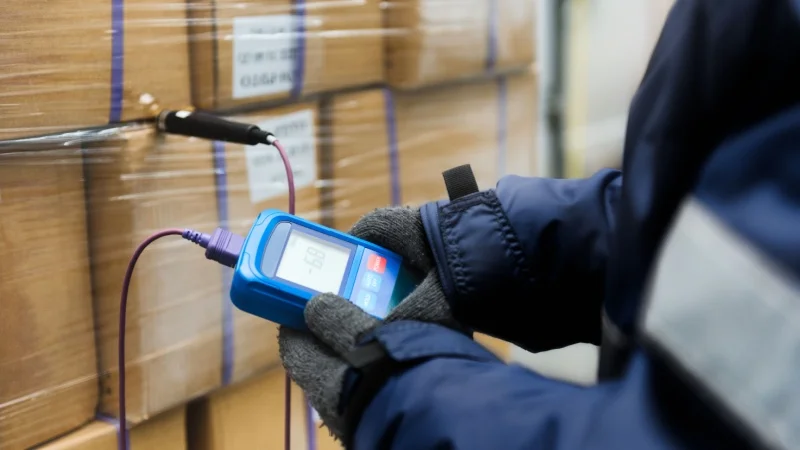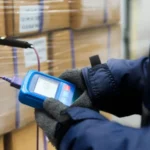In today’s global marketplace, the journey of products from manufacturer to consumer often spans vast distances and varying climates. For many industries, maintaining specific thermal conditions throughout this journey is not just beneficial—it’s critical. This is where temperature-controlled warehousing comes into play, serving as a vital link in cold chain logistics. From fresh produce to pharmaceuticals, many products require precise temperature conditions to maintain their quality, efficacy, and safety. In this comprehensive guide, we’ll explore the numerous benefits of TCW and how it can optimize your supply chain operations.
What is Temperature Controlled Warehousing?
TCW is a specialized segment of the logistics and supply chain industry that focuses on storing and handling products that require specific heat level. These facilities are designed to maintain precise temperature ranges, from deep freeze (below -18°C or 0°F) to ambient (room temperature), depending on the products being stored.
Benefits of Temperature Controlled Warehousing
Let’s delve deeper into the numerous advantages that TCW offers:
1. Superior Product Quality Assurance
Temperature controlled warehouse ensures that products are stored in optimal conditions, maintaining their quality from production to consumption. This is particularly crucial for:
- Pharmaceuticals: Maintaining potency and effectiveness
- Food products: Preserving freshness, taste, and nutritional value
- Electronics: Preventing damage from extreme temperatures or humidity
- Chemicals: Maintaining stability and preventing degradation
2. Significant Reduction in Product Waste
By maintaining consistent warehouse temperatures, these warehouses help:
- Prevent spoilage of perishable goods
- Avoid damage to temperature-sensitive materials
- Reduce the risk of product recalls due to temperature-related quality issues
This not only saves costs but also contributes to sustainability efforts by minimizing waste.
3. Enhanced Food Safety
For the food and beverage industry, climate-controlled warehouse is critical for:
- Preventing bacterial growth
- Maintaining proper texture and appearance
- Ensuring food remains safe for consumption
This is particularly important given the stringent food safety regulations in many countries. Partnering with providers offering the best warehousing and storage services in Qatar can streamline logistics, reduce costs, and enhance overall operational efficiency for businesses expanding in the region.
4. Compliance with Regulatory Standards
Many industries, especially pharmaceuticals and food, are subject to strict regulations regarding storage conditions. TCW help businesses:
- Meet Good Distribution Practice (GDP) guidelines
- Comply with Food Safety Modernization Act (FSMA) requirements
- Adhere to specific storage requirements for different products
5. Increased Market Reach
Controlled temperature in warehouse enables businesses to:
- Store and distribute products over longer distances
- Enter new markets, including international ones
- Offer a wider range of products, including those with specific temperature requirements
This expanded reach can significantly boost business growth and profitability. By leveraging efficient Warehousing and Storage in Qatar, companies can optimize their supply chain operations and meet the growing demand in the region.
Optimize Your Logistics Through Temperature Controlled Warehousing
Controlled temperature warehousing is not just about maintaining a cool environment. It involves sophisticated systems and processes to ensure that products are stored at their optimal heat conditions throughout their time in the warehouse and during transportation. This level of control allows businesses to:
- Store a wide range of products with different thermal conditions in the same facility
- Implement efficient inventory management systems
- Provide value-added services like repackaging or quality checks under controlled conditions
- Support e-commerce operations for perishable goods
- Facilitate global trade of temperature-sensitive products
3 Best Practices for Optimizing Temperature Controlled Warehousing
To maximize the benefits of controlled temperature storage, consider implementing these best practices:
1. Implement Advanced Monitoring Systems
Utilize IoT sensors and real-time monitoring technologies to:
- Track temperature and humidity levels continuously
2. Design your warehouse layout to:
- Minimize temperature fluctuations during product movement
- Separate products with different temperature requirements effectively
- Improve energy efficiency
3. Invest in Staff Training
Ensure your team is well-versed in:
- Proper handling procedures for temperature-sensitive products
- Operating and maintaining temperature control systems
- Regulatory requirements and compliance procedures
By maintaining product integrity, ensuring regulatory compliance, and enabling market expansion, these specialized facilities offer important advantages to businesses dealing with temperature-sensitive products. TraveLite offers top-notch temperature-controlled warehousing solutions tailored to your specific needs. Whether you’re in the food, pharmaceutical, or chemical industry, our advanced facilities and expert team can help you maximize the benefits of temperature-controlled storage.










